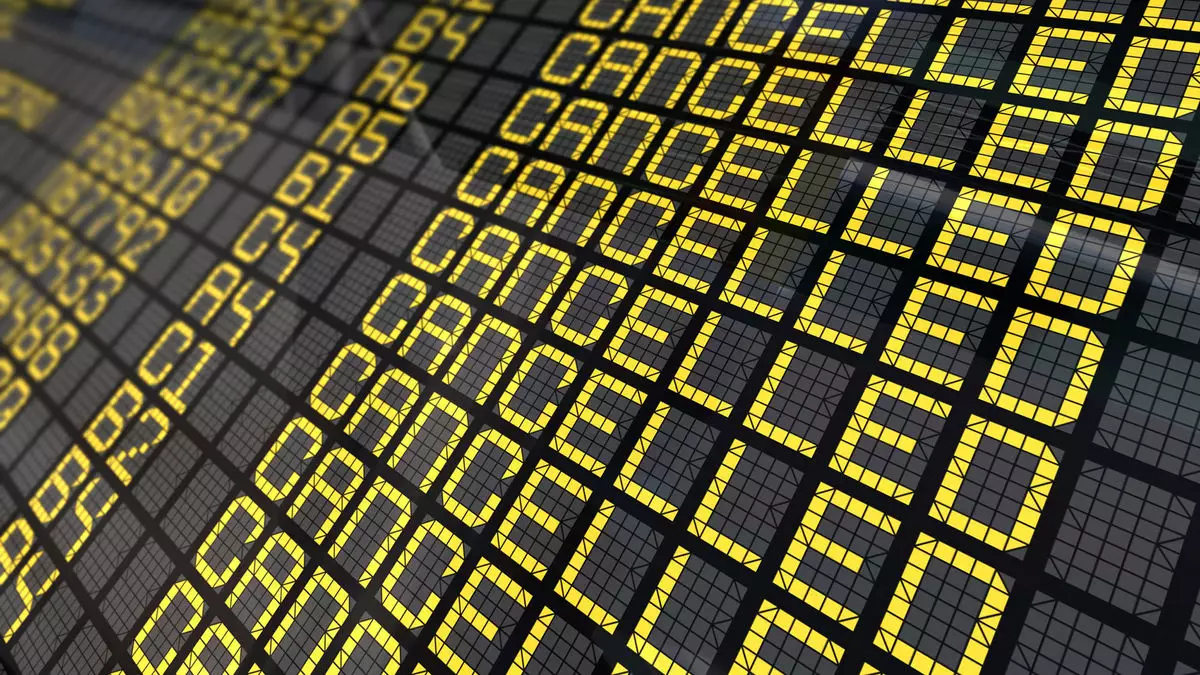In recent months, the topic of passenger rights in the airline industry has garnered significant attention, especially following new proposals from the Transportation Department (DOT). On December 5, the DOT revealed plans that could herald a shift in the relationship between airlines and their customers, particularly regarding compensation for travel disruptions. This article examines the implications of these proposals, their reception, and the potential consequences for the airline industry and consumers.
The DOT’s proposal mandates that airlines provide compensation to passengers affected by cancellations and delays exceeding three hours, provided these disruptions are due to airline negligence rather than external factors such as inclement weather. This measure aims to enhance consumer protection in an industry where delays and cancellations can cause substantial inconvenience. The suggested compensation amounts are structured in tiers, starting at $200 to $300 for delays between three to six hours, escalating to $375 to $525 for delays beyond six hours, and reaching up to $775 for more extended disruptions.
Such a tiered structure could create a safety net for air travelers, ensuring that they do not bear the brunt of airlines’ operational failures. The DOT is also considering various factors, including whether smaller airlines should have different compensation thresholds, thereby acknowledging the diverse operational capacities within the industry. However, the proposal is still in its nascent stage, as the DOT has sought public feedback and has yet to finalize its stance on specific compensation amounts.
Transportation Secretary Pete Buttigieg underscored the urgency of this initiative by referencing the extensive support provided to the airline industry during the COVID-19 pandemic. As air travel rebounds, Buttigieg argues that now is the opportune moment to enhance passenger protections. His assertion resonates with many who have faced the unpredictability of air travel, generating hope that these changes could foster a more equitable system for passengers.
Nevertheless, the proposed regulations did not emerge overnight; they appeared to accelerate following earlier announcements from the Biden administration. The pressing social need for stronger passenger rights is finally being acknowledged at a governmental level, with the DOT positioning itself as a guardian for consumer interests—a role that has repeatedly been criticized in the past.
Not surprisingly, airlines have reacted with concern regarding these proposed regulations. Airlines for America (A4A), a prominent airline trade group, has criticized the idea of additional mandatory compensation. They contend that airlines are already taking measures to address customer dissatisfaction related to delays and cancellations, such as offering refunds and reimbursing expenses incurred during long delays that are within their control. A4A warns that imposing further financial requirements could inadvertently increase ticket prices, making air travel less accessible for budget-conscious consumers.
This contention raises a broader debate about the balance of responsibility in the airline industry. While it is true that airlines strive to retain customers through customer service initiatives, the consistent challenges faced by passengers indicate the need for stronger accountability frameworks. If the proposed regulations are fully implemented, they could instigate a transformation in how airlines manage customer service. The industry must adapt to meet these expectations or risk losing the customer loyalty that is so vital for their long-term success.
Internationally, many countries have already implemented robust compensation systems for air travelers. Nations such as Canada and those in the European Union have established compensation laws requiring airlines to reimburse passengers substantially for long delays and cancellations. In the EU, for example, compensation can reach up to 600 euros, setting a high standard that the U.S. could follow.
The insights from these global counterparts highlight the viability of such regulations, demonstrating how enhanced passenger rights can coexist with a thriving airline industry. It raises the question: Are U.S. airlines prepared to embrace similar practices to improve consumer trust and satisfaction?
With the DOT’s current proposal, the future of commercial air travel in the United States stands at a crossroads. As air travel experiences a resurgence, a reinforcement of consumer protections could mark a pivotal shift toward greater accountability. The outcome of public feedback, industry pushback, and eventual rule-making decisions will shape the landscape of air travel in the coming years.
Ultimately, these developments should serve as a wake-up call to the airline industry: prioritizing customer experience and accountability must become fundamental to their operational ethos. If the DOT moves forward with these new regulations, they may provide a template for a more passenger-centered travel experience in a post-pandemic world, establishing a new standard for airline accountability that benefits both travelers and the industry alike.


Leave a Reply